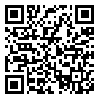Volume 18, Issue 2 (2-2019)
ijdld 2019, 18(2): 97-109 |
Back to browse issues page
Download citation:
BibTeX | RIS | EndNote | Medlars | ProCite | Reference Manager | RefWorks
Send citation to:



BibTeX | RIS | EndNote | Medlars | ProCite | Reference Manager | RefWorks
Send citation to:
Soltanizadeh M, Montazeri M, Latifi Z. THE EFFECTIVENESS OF COGNITIVE-BEHAVIORAL THERAPY ON EMOTIONAL REGULATION IN CHILDREN WITH TYPE 1 DIABETES. ijdld 2019; 18 (2) :97-109
URL: http://ijdld.tums.ac.ir/article-1-5737-en.html
URL: http://ijdld.tums.ac.ir/article-1-5737-en.html
1- Department of Psychology, Payam Noor University, Isfahan, Iran , Mohammad.soltani@hotmail.com
2- Department of Psychology, Payam Noor University, Isfahan, Iran
2- Department of Psychology, Payam Noor University, Isfahan, Iran
Abstract: (4351 Views)
Background: Type 1 diabetes is one of the most common metabolic abnormalities in childhood, with one in every 400 to 600 children affected by the disease. The aim of study was to evaluate the effectiveness of cognitive-behavioral therapy on emotional regulation of children with type 1 diabetes.
Methods: The research design was a quasi-experimental design with pre-test, post-test and follow-up and control group. The sample of 25 children aged 8 to 13 years with type 1 diabetes was diagnosed by endocrinologist. They were randomly assigned control (n = 15) and experimental (n = 10) groups. Subjects completed an cognitive emotion regulation questionnaire (Garnefski et al., 2007) in a pre-test, post-test, and one month and a half follow-up. Data were analyzed using repeated measure analysis of variances.
Results: The results of this study showed that there was a significant difference between the mean scores of emotional regulation in pre-test, post-test and follow-up (P <0.01). Also, there was a significant difference between emotional regulation in the experimental and control groups (P <0.05).
Conclusion: Cognitive-behavioral therapy can be considered as an effective intervention to regulate the excitement of children with diabetes.
Methods: The research design was a quasi-experimental design with pre-test, post-test and follow-up and control group. The sample of 25 children aged 8 to 13 years with type 1 diabetes was diagnosed by endocrinologist. They were randomly assigned control (n = 15) and experimental (n = 10) groups. Subjects completed an cognitive emotion regulation questionnaire (Garnefski et al., 2007) in a pre-test, post-test, and one month and a half follow-up. Data were analyzed using repeated measure analysis of variances.
Results: The results of this study showed that there was a significant difference between the mean scores of emotional regulation in pre-test, post-test and follow-up (P <0.01). Also, there was a significant difference between emotional regulation in the experimental and control groups (P <0.05).
Conclusion: Cognitive-behavioral therapy can be considered as an effective intervention to regulate the excitement of children with diabetes.
Type of Study: Research |
Subject:
Special
Received: 2018/08/2 | Accepted: 2018/12/19 | Published: 2019/02/15
Received: 2018/08/2 | Accepted: 2018/12/19 | Published: 2019/02/15
Send email to the article author
| Rights and permissions | |
 |
This work is licensed under a Creative Commons Attribution-NonCommercial 4.0 International License. |





